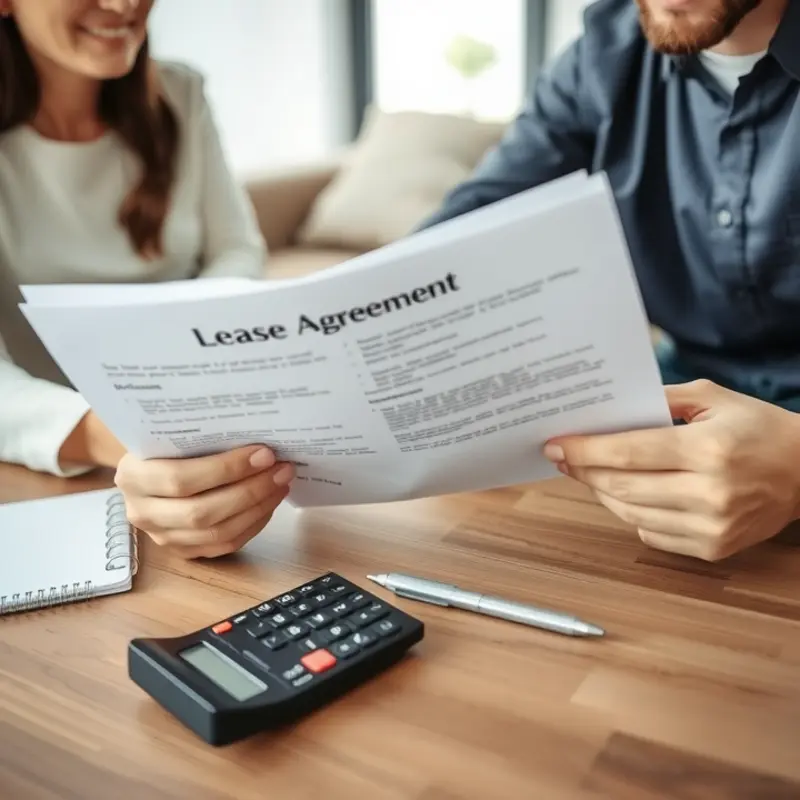Navigating the rental market can be daunting, especially for young professionals, first-time renters, students, couples, and families. With varying state renter protection laws, it’s crucial to understand your rights and responsibilities before signing a lease. With housing costs on the rise and demand for affordable living options increasing, renter protections can offer vital security. Each state has unique rental laws that may cover issues such as security deposits, eviction processes, and lease terms. By understanding these protections, you can make informed decisions that will not only safeguard your financial future but also enhance your renting experience. This guide will provide you with practical insights into navigating state renter protection laws and how to leverage them to your advantage. Moreover, it emphasizes the need for thorough lease guidance, ensuring that your first renting experience is not only financially sound but also confidence-building as you embark on this exciting new chapter in your life.
Navigating State Laws: Your Rights as a Renter

Embarking on your journey as a first-time renter involves understanding a patchwork of state laws designed to protect tenants. These laws empower you as a renter by outlining key rights and responsibilities, ensuring a smooth and fair renting experience.
Security Deposits
One of the first financial steps in renting is paying a security deposit, a safeguard for landlords against potential damages. State laws vary significantly in regulating these deposits. Typically, states set a limit on the amount that can be charged, often capping it at one or two months’ rent. Understanding your state’s specific rules can make a significant difference, as some states also require landlords to place the deposit in an interest-bearing account or provide annual reports on its status.
Regarding return of deposits, most states mandate that landlords return them within a specified time frame, generally 14 to 30 days after you vacate the property. Alongside the return, landlords should provide an itemized list of any deductions for damages beyond normal wear and tear. If you encounter trouble retrieving your deposit, knowing your state laws can be crucial in addressing disputes.
Repairs and Maintenance
For any rental property, the responsibility for maintaining livable conditions primarily falls on landlords. Most state laws require landlords to ensure that properties meet basic habitability standards, including working plumbing, heating, and electrical systems.
If repairs are necessary, tenants typically must notify the landlord in writing. State laws often define specific timelines within which landlords must address such repairs. If they fail to act, renters may have legal recourse options like withholding rent or making repairs themselves and deducting the cost from future rent payments. However, these actions are strictly regulated, so it’s crucial to familiarize yourself with your state’s specific guidelines.
Eviction Processes
Evictions are one of the more distressing possibilities renters may face. Fortunately, state laws provide procedures landlords must follow before any eviction can take place. Generally, these laws require landlords to give ample notice, often ranging from 3 to 30 days, and detail the reasons for eviction, such as non-payment of rent or violation of lease terms.
Tenants have the right to contest eviction in court, providing them an opportunity to present their case before a judge. In many cases, followed procedures and timelines offer tenants a buffer to either rectify the issue or find alternative housing. Being informed about these processes empowers you to act confidently if faced with a potential eviction.
Grasping the intricacies of your renter rights not only arms you with legal protection but enhances your renting experience. For further insights on maintaining a safe living environment, you might find this guide to apartment safety inspections useful. By understanding and asserting your rights, you can ensure a more stable, risk-managed tenancy.
Crucial Lease Insights: What to Look for Before Signing

Signing a lease is a significant step in securing your next home, and understanding each part can help prevent costly misunderstandings. Knowing what key terms to look for and what questions to ask will ensure the lease aligns with your needs and respects applicable laws.
Key Lease Terms to Examine:
-
Rent Amount and Due Date: Ensure that the rent amount is clearly stated, along with where and how you need to pay it. Familiarize yourself with any fees that may apply for late payments.
-
Lease Length and Renewal Terms: Check the lease duration and understand the renewal process. Decide if the timeline aligns with your long-term plans.
-
Security Deposit Details: Your lease should clearly define the security deposit terms, including how much is required, how it is used, and conditions for its return. Check your state’s laws regarding maximum allowed deposits and interest payments on them. For more insights on how security deposits work, this resource on security deposit interest might be helpful.
-
Maintenance and Repairs: Learn who is responsible for repairs. Understand the process and timeline for reporting issues and whether they might incur expenses.
Questions to Ask Your Landlord:
-
What is the Guest Policy? Many leases include language about guests staying for extended periods. Understand these terms to avoid future disputes.
-
Are Pets Allowed? Verify if pets are permitted and address any additional fees or restrictions that might apply to pet owners.
-
Can I Make Modifications? Find out what personal touches you can add to your space. Some leases prohibit changes like painting or installing new fixtures.
Negotiating Better Conditions:
-
Compare Similar Properties: Use your market research to negotiate deals. Highlight competitive rental rates or more flexible terms found in other apartments.
-
Request Specific Changes: If you wish to alter any lease clauses, request these explicitly. This could include negotiating grace periods for rent or additional storage.
-
Document Every Agreement: Any agreed-upon changes should be documented. This ensures both parties have clear expectations and can help mitigate disputes.
-
Seek Professional Guidance if Needed: Consulting a legal advisor to review your lease can ensure you’re protected and fully understand the agreement.
With an understanding of these elements, you can approach lease signing with confidence. Reading every part of your potential lease closely guarantees alignment with your personal and professional life while safeguarding your rights as a renter.
Final words
Understanding state renter protection laws is essential for young professionals, first-time renters, and families alike. Knowing your rights and having the right guidance can greatly enhance your renting experience. By ensuring that your lease agreements are fair and reflective of your needs, you not only protect your finances but also secure peace of mind as you establish a new home. Always stay informed about your rights and do not hesitate to ask questions or seek assistance when needed. With the right preparation, you can confidently navigate the rental landscape and create a happy, healthy living environment.









